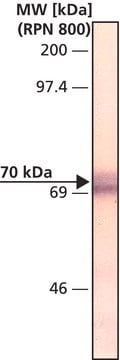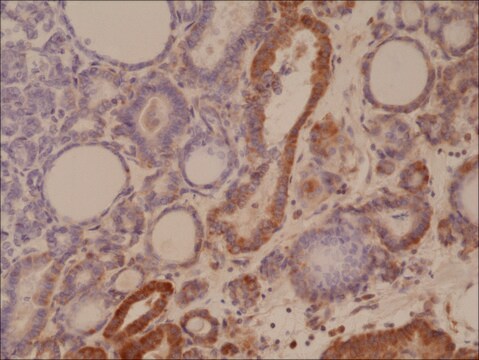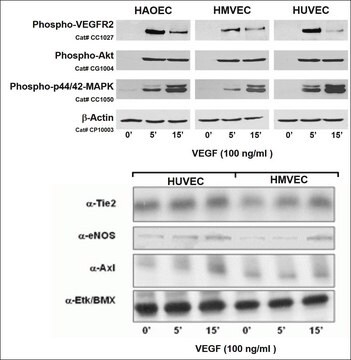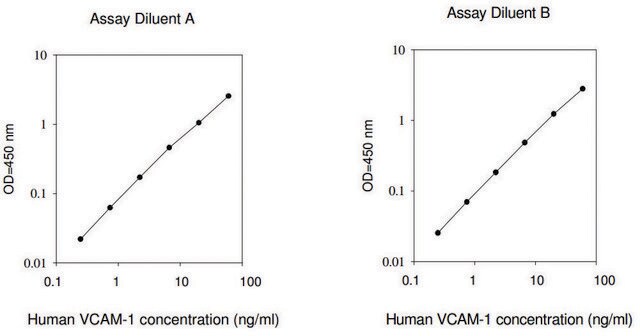V9134
Monoclonal Anti-Vascular Endothelial Growth Factor Receptor-2 antibody produced in mouse
clone KDR-1, ascites fluid
Synonym(s):
Anti-KDR, Anti-VEGF R-2
Select a Size
About This Item
Recommended Products
biological source
mouse
Quality Level
conjugate
unconjugated
antibody form
ascites fluid
antibody product type
primary antibodies
clone
KDR-1, monoclonal
contains
15 mM sodium azide
species reactivity
human
technique(s)
immunohistochemistry (frozen sections): 1:800 using human placenta
indirect ELISA: suitable
isotype
IgG1
General description
Immunogen
application
- immunohistochemistry
- histology
- immunostaining
- enzyme linked immunosorbent assay (ELISA)
Biochem/physiol Actions
Disclaimer
Not finding the right product?
Try our Product Selector Tool.
Storage Class
10 - Combustible liquids
wgk_germany
WGK 1
flash_point_f
Not applicable
flash_point_c
Not applicable
Choose from one of the most recent versions:
Already Own This Product?
Find documentation for the products that you have recently purchased in the Document Library.
Our team of scientists has experience in all areas of research including Life Science, Material Science, Chemical Synthesis, Chromatography, Analytical and many others.
Contact Technical Service








